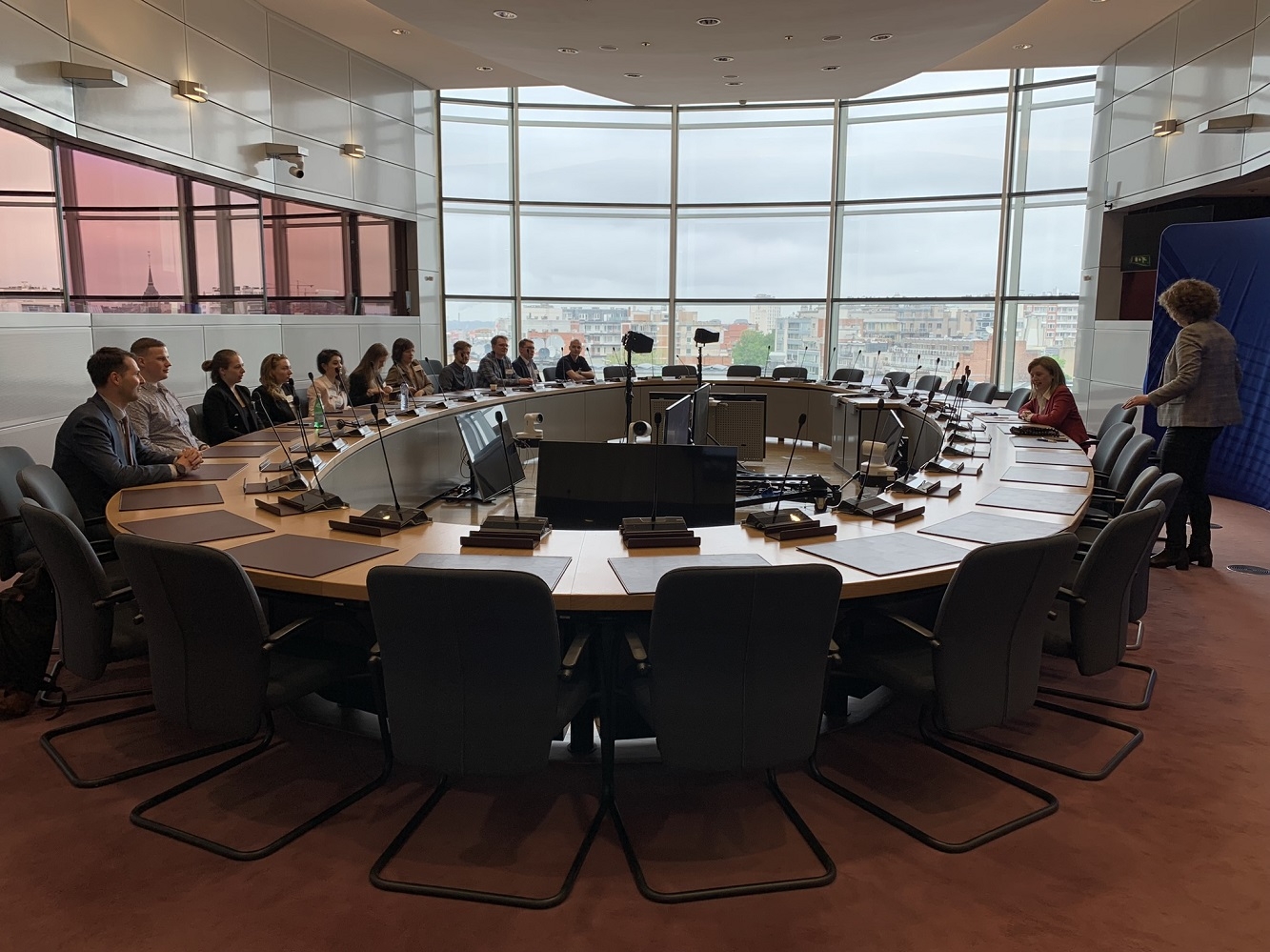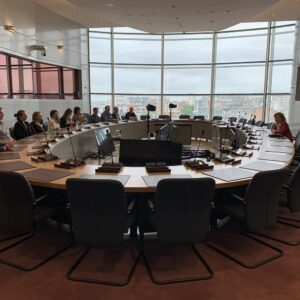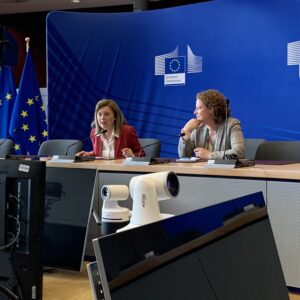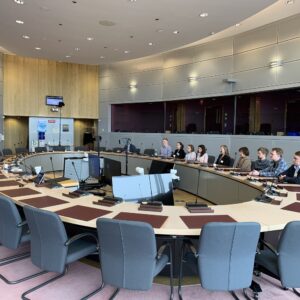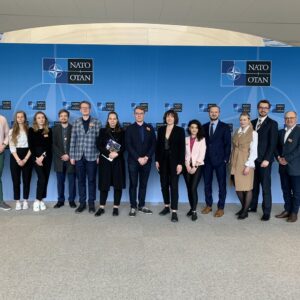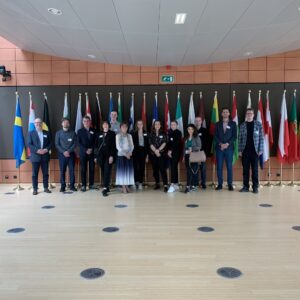How do European policies work? FIR students traveled to Brussels
From 10 to 12 May 2023, students majoring and minoring in European Economic Integration participated in a study trip to the EU institutions in Brussels. During three busy days, they visited the European Commission, the Permanent Representation of the Czech Republic to the EU, NATO Headquarters, the European Parliament and EU consultative bodies.
The programme started with a visit to the European Commission’s Directorate General for Energy, where students discussed current issues in the European energy sector with Adéla Tesarova (a graduate of the Prague University of Economics and Business), Head of the Unit for Fair Transformation, Consumers and Energy Efficiency. The delegation, led by Dr. Josef Bič and Dr. Jarolim Antal, was received by the Vice-President of the European Commission for Values and Transparency, Věra Jourová. Discussions focused on the role of Commissioners in practical terms as well as on current agendas such as media freedom and the EU’s response to hate speech on the internet.
The next speaker for the European Commission was Alexandr Hobza (a graduate of Prague University of Economics and Business), Chief Economist of the Directorate General for Research and Innovation. The presentation and the discussion that followed revolved around the strengths and weaknesses of EU Member States’ research and innovation activities and the information resources available on this issue.
The busy day-long programme was concluded with an informal discussion in a Brussels restaurant with Lenka Fořtová, a graduate in European economic integration who is currently working at the European Commission’s Directorate General for Trade as a National Secondee.
On Thursday, the delegation visited the Permanent Representation of the Czech Republic to the EU. Linda Messias spoke about the opportunities and experience of the trainees. The Faculty of International Relations traditionally sends students on internships at the Permanent Representation, who subsequently highly value the internship for the skills and knowledge they have gained. The Czech Presidency of the Council of the EU in particular demonstrated the excellent skills of our students, as they were able to quickly navigate the dynamic agenda and help with the running of a challenging but extremely rewarding period. The students then discussed with two experts, Matyáš Pelant, Head of Trade Policy, who highlighted the new challenges facing international trade not only globally but also from an EU perspective, which are under pressure from turbulent developments. He also spoke with Jan Havlík, Head of Internal Market and Competitiveness, about the rules on digital services (DSA), and the so-called carbon tariff (CBAM), the compromise form of which he negotiated during the Czech Presidency.
The afternoon programme moved to NATO headquarters. Led by Matti Tetrev, a graduate of Diplomacy at FIR, the delegation visited the premises where NATO is based. In small group discussions, students could discuss both the functioning of the Czech delegation to NATO and the work of diplomats in practice. In the evening, students participated in a panel discussion organised by the Permanent Representation of the Czech Republic to the EU, where they had the opportunity to learn about career opportunities in the EU institutions.
Friday’s programme continued with a visit to the European Parliament. The delegation met with Andrea Fourtoy-Chepa (a graduate of FIR), advisor of the Reformist and Conservative Group. Afterwards, the students visited the Parlamentarium Information Centre.
In the afternoon, an excursion to the European Economic Committee and the Committee of the Regions followed. Both institutions are consultative bodies of the EU. Tatiana Adamišová presented the powers and influence of the EESC, while Markéta Franková talked about the representation of the regions and her experience from her long experience working for the European institutions. Afterwards, we moved to the airport and arrived in Prague at 22:40.
This was the first time that the study trip took place within the European Economic Integration programme. The students’ interest, questions and discussions throughout the excursion show that understanding the European integration process and European policies is also necessary from a practical perspective. Among other things, the trip to the institutions pointed many in the direction of where to go after graduation. The study trip was supported by the Faculty of International Relations..
